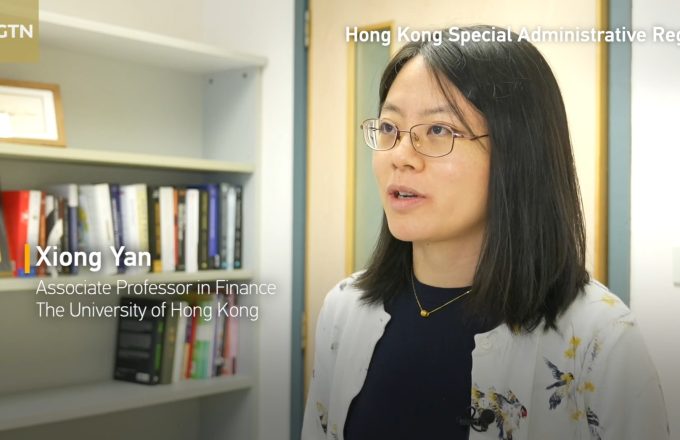
Quantamental Investing in the Age of Accelerating AI
Quantamental investing—a strategy that melds traditional fundamental analysis with data-intensive quantitative methods—has surged in popularity over the past decade. Today, it stands on the cusp of a transformative era: advanced AI models, once prohibitively expensive, are becoming more capable, affordable, and widespread. This technological leap is poised to redefine how we identify and exploit market inefficiencies. Imagine a team of tireless, ever-alert junior analysts who can analyze millions of corporate filings, news articles, and social media chatter in seconds—that’s essentially what these next-generation AI systems offer.
While chatbots capable of drafting essays or writing code have become commonplace, the real revolution lies in sophisticated reasoning models such as DeepSeek-R1 or o1. Developed by the Chinese AI firm DeepSeek, DeepSeek-R1 is an open-source AI model that rivals OpenAI’s o1 in analytical performance, all at a fraction of the cost. This model operates tirelessly, delivering near human-level analytical capabilities in areas such as science and document analysis without the need for rest. Although early critics point to occasional errors or “hallucinations,” each new AI iteration arrives faster, cheaper, and smarter than its predecessor.
Skeptics rightly argue that current AI struggles to handle real-world complexity or that we will soon exhaust available data. It seems as if many obstacles signal an impending “AI winter.” Yet, history consistently proves these doubts wrong. Current models may occasionally err—such as mislabeling images or stumbling over certain puzzles—but these issues typically diminish with each upgrade. Regarding the so-called “data wall,” tools such as the Genesis physics engine can now simulate endless real-world scenarios, generating fresh training data on demand. We may be far from reaching any true data limitations in other areas as well.
The evolution of computer chess offers a cautionary tale. Two decades ago, enthusiasts critiqued engine-versus-engine matches with comments like, “Look at that weak bishop move! Totally clueless!” Over time, it became evident that these engines operated on a level of strategic depth beyond human comprehension. A similar pattern is emerging in finance: as AI models surpass human analysts in some capacities, traditional critiques begin to lose their grounding.
Humans often pride themselves on intangible qualities such as intuition and gut feeling. However, top chess engines now exhibit strategic depths that outstrip any grandmaster’s. In financial analysis, AI may soon unearth insights about market anomalies, correlations, or risk exposures that even the sharpest human analyst might overlook.
With progress comes a significant concern: alignment. If in the future an advanced AI is to humans what humans are to apes, how could an ape society truly control or steer humans? Could it shape our motivations or prevent actions beyond their understanding? This analogy applies to AI alignment: as these systems may surpass us in certain cognitive tasks in the future, how do we ensure they remain beneficial?
Even if we reduce errors by 99.9%, that 0.1% “critical error” moment could be catastrophic if we entrust AI with our financial infrastructure. Imagine a model misinterpreting data and executing trades that destabilize entire financial markets. This risk isn’t a call to halt progress, but a reminder that these models require robust oversight, external checks, and well-designed fallback mechanisms.
For quantamental investors, the potential benefits are immense. Advanced AI can ingest vast amounts of corporate filings, news articles, and social media chatter in real time, extracting subtle sentiment signals that inform fundamental valuations. Instead of manually reading a handful of corporate annual reports, you could deploy a system that scans entire sectors, highlights anomalies, and suggests plausible narratives behind price movements.
Moreover, machine reasoning can detect emergent patterns that might elude classical quant models or even seasoned analysts. For instance, it might recognize that a specific supply chain disruption consistently triggers a hidden price reaction in an unrelated sector. Or it could identify a pattern where a drop in one commodity’s price sets off currency fluctuations, presenting a brief arbitrage opportunity to take a risk-free profit. A well-aligned AI agent can piece these clues together faster than any human.
Integration is key. Most investors still value the human touch for significant decisions. Think of AI as an always-on idea generator, augmenting your best analysts, not replacing them. Humans excel at nuance, creative leaps, and trusting their instincts in ambiguous scenarios—at least for now.
We are living in an era where AI can plausibly outperform legions of junior analysts while consuming data on a scale unthinkable a decade ago. The cost of accessing this power decreases with each iteration. Yes, we still face risks, including the critical alignment challenge: how do we keep a super-smart system from going off the rails if it’s operating at a level we struggle to comprehend
These challenges shouldn’t overshadow the transformative benefits for investors. While critics rightfully continue to highlight many shortfalls, it’s a losing game as progress marches on. The real question for fund managers and corporate leaders isn’t whether the current AI model is perfect, but whether they can afford not to incorporate these evolving capabilities into their strategies. After all, if you had told chess grandmasters thirty years ago that a household PC would soon crush them at their own game, they might have laughed—until it happened.
A balanced approach is best: maintain a healthy dose of caution regarding alignment pitfalls, but embrace the enormous potential to revolutionize everything from portfolio optimization to risk management. The future of quantamental investing likely lies in a partnership between human wisdom and supercharged AI, each covering the other’s blind spots. And if apes can’t steer us humans, let’s make sure we create a more effective strategy for aligning our advanced AI. This way, we can all relax while the AI handles the complex financial tasks.
Disclaimer: This article provides general insights only and does not constitute financial or investment advice.






